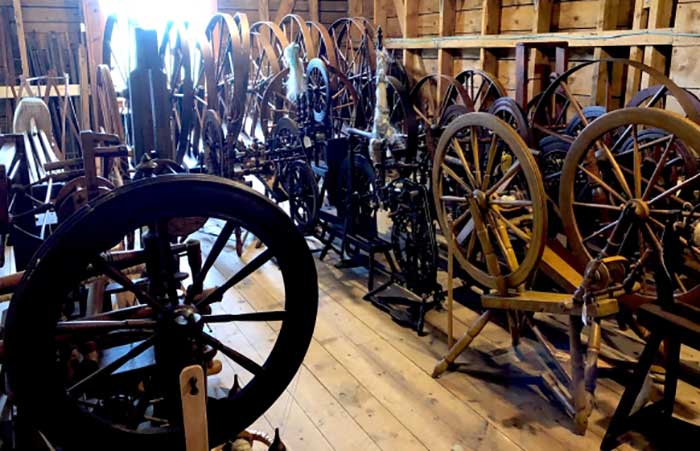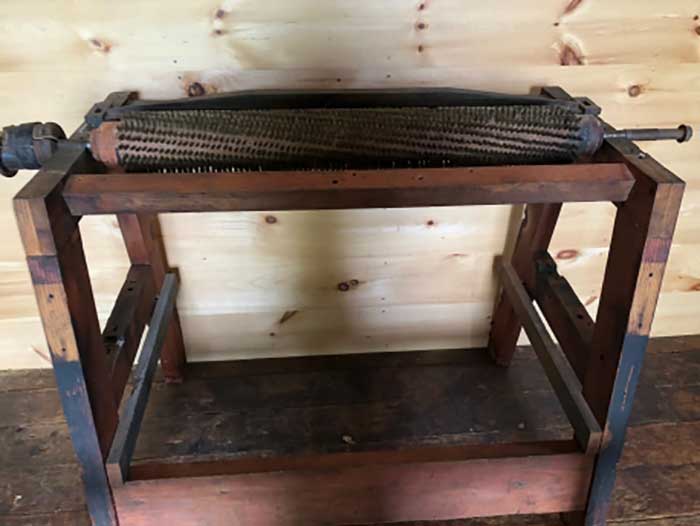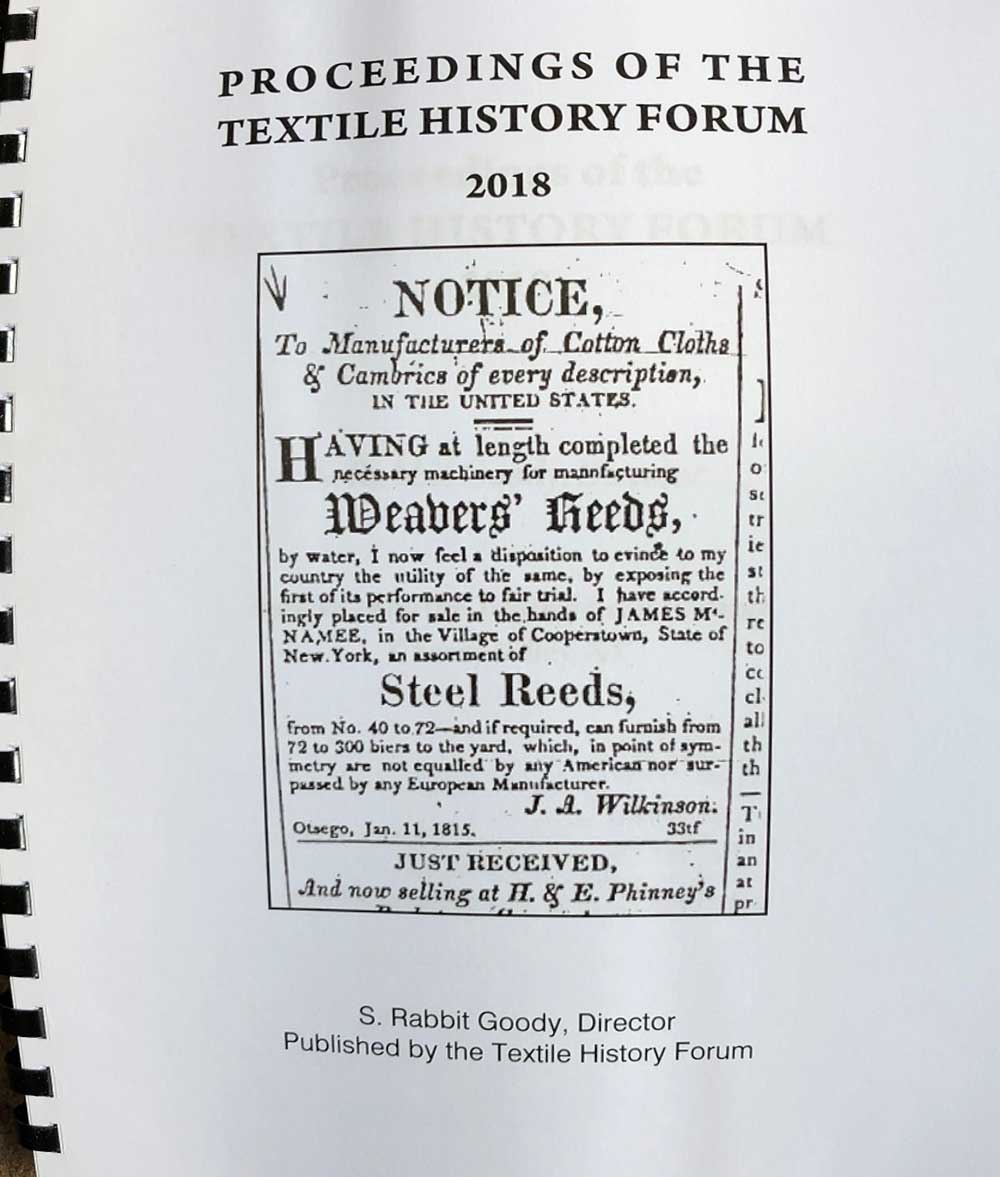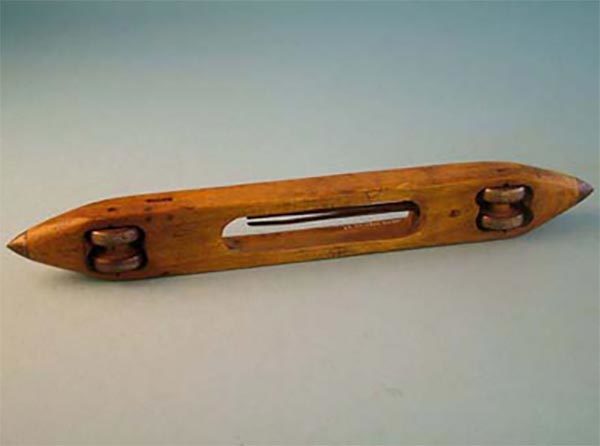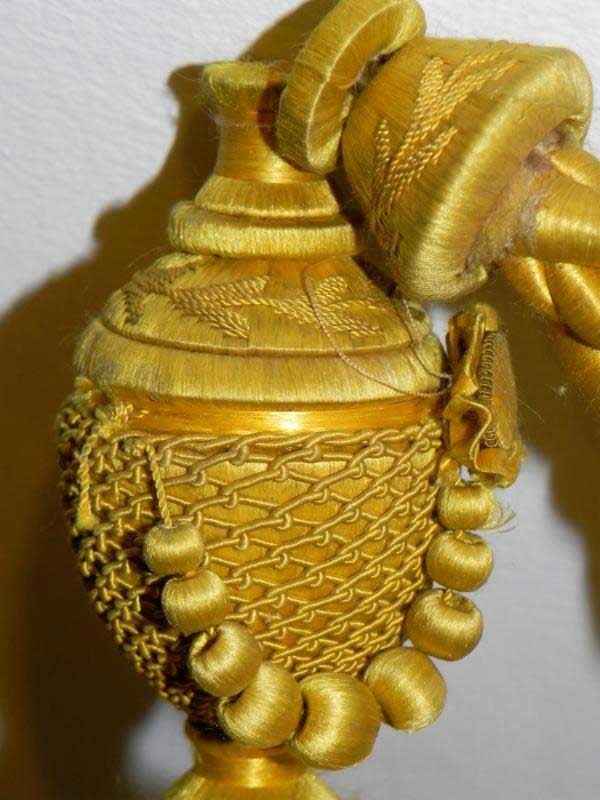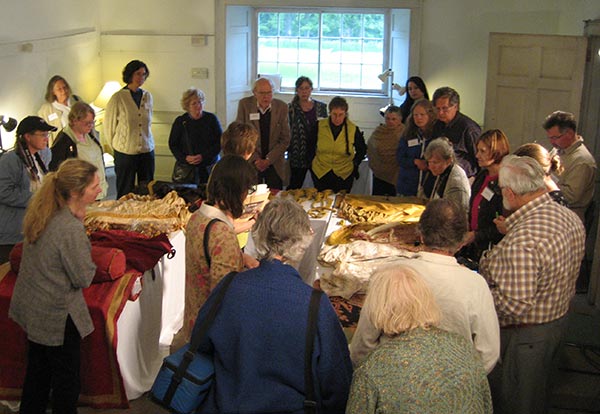Marshfield School of Weaving and Kate Smith’s Eaton Hill Textile Works
Saturday, July 27 – Sunday, July 28
The Mechanization and Powering of Textile Production 1700 to 1860.
This July, explore transitional textile technology with us.
How did innovation create tools, and machines that allowed for the powered production of textiles that ultimately changed the way we wear and use cloth? The forum will be both discussion and hands-on demonstration of some of those processes and equipment that changed fiber preparation, weaving and cloth finishing.
Unlike other forums, this will be an intensive two days in which participants will learn and discuss some of the technology that allowed the development of ingrain carpet production, coverlet production, the production of napped and sheared cloth, the cheap production of cotton fabrics for the poorer classes and the interplay in rural America between the fancy weaver, the clothier and the local production of fiber. Some equipment will be set up for hands-on opportunities for participants.
The registration fee of $225 includes all sessions and lunch on both days, as well as the optional visit to the Vermont Historical Society on Friday afternoon. If you have already registered but want to join the Friday Tour, please Contact us to confirm.
Saturday morning session
- A textile technology timeline
- Understanding how bottlenecks in technology lead to innovation
- Changes from hand to mechanical and water power in fiber processing and spinning create an opening for powered weaving technology
Saturday afternoon session one:
- Carding technology
- Multiple spinning devices: the vertical spinner
- The slubbing billy, the jenny, the jack and the mule
- Patented spinning wheels, the pendulum wheel and other late innovations
Saturday afternoon session two:
- Looking at cloth, what can we tell?
- How do we tell hand spun yarns in common cloths?
- Machine spinning or home plying – can we tell?
- Powered spinning technology and early spinning mills
Sunday morning session
- The mechanical draw loom and hand loom patterning devices
- Kleenex and tissue: the ingrain carpet head and the jacquard head
- Patented hand patterning devices
Sunday afternoon session one:
- The relationship between the fancy rural weaver and the home weaver
- Reading and understanding fancy weavers advertisements as related to home spinning production
Sunday afternoon session two:
- Can we tell, by looking at how something was woven, what mechanical device was used?
- Ingrain carpet and coverlets – the ultimate connection
